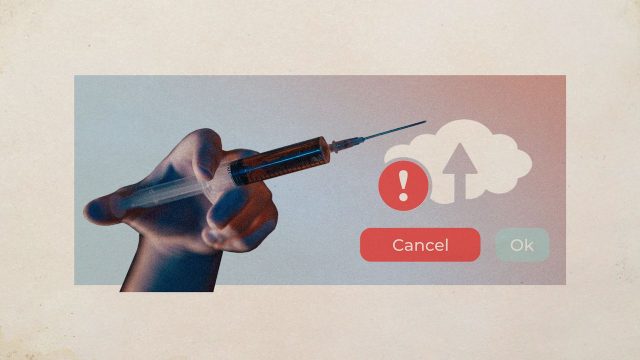
A new way of getting high is “tearing the roof off” Fiji’s HIV infection rate, said The Fiji Times. “Bluetoothing” sees intravenous drug users “plunging a syringe” of methamphetamine into a vein, then withdrawing some of their drug-rich blood and injecting it into a second person, who does the same for a third – and so on.
Multiple people sharing a “hit” and a syringe like this saves money but, by sharing blood, users are greatly increasing their risk of HIV infection. And, in the past 10 years, Fiji has seen “an elevenfold leap” in the number of people living with HIV – from 500 people to 5,900. An assistant health minister last week warned that the tiny Pacific island may record more than 3,000 new cases by the end of 2025.
‘Surge in addiction’
Bluetoothing is particularly common among Fiji’s teenagers and young adults, with meth-filled syringes selling on the streets for “as little as 10 Fijian dollars” (£3.30), said ABC News. The “surge in addiction is overwhelming” the island’s health services and children “as young as 13” have been contracting HIV due to intravenous drug use.
“The intersection of meth use and HIV is particularly troubling” because meth users already tend to have weakened immune systems, said Massey University research associate Apisalome Movono on The Conversation. And “the stigma and discrimination associated with both meth use and HIV mean many are reluctant to seek help”.
With nearly 50% of people diagnosed with HIV in Fiji avoiding further treatment, bluetoothing is only going to get riskier, said the Fiji Sun – not to mention that the island nation is also grappling with “simultaneous outbreaks” of illness caused by two other bloodborne viruses, hepatitis B and hepatitis C.
‘A perfect storm’
The government has taken some action, said The Telegraph, designating the spread of HIV infection a “national outbreak” in January, and authorising $10 million Fijian dollars (£3.3 million) in new funding for treatment, testing and an awareness campaign. But health experts say there is much more to be done. Many are pushing for a “needle exchange programme” and an official public health response to tackle meth addiction.
Grassroots activists are using Pacific cultural practices to work with those affected by HIV. Jokapeci Tuberi Cati, the first person in Fiji to “live openly” with HIV, promotes “talanoa”, the principle of “exchanging open conversation”, to share knowledge and offer support for those living with the disease, said SBS News.
There is “no quick fix” to this “perfect storm” of addiction, HIV and a struggling health system, said Movono on The Conversation. But “empowering local communities” will engender “more sustainable and culturally appropriate solutions”, particularly when it comes to “reducing the stigma and discrimination”. Other Pacific nations “will be looking to Fiji to tackle the issue head on and prevent the crisis spreading”.
‘Blood-swapping’ between drug users fuelling growing health crisis on Pacific island




